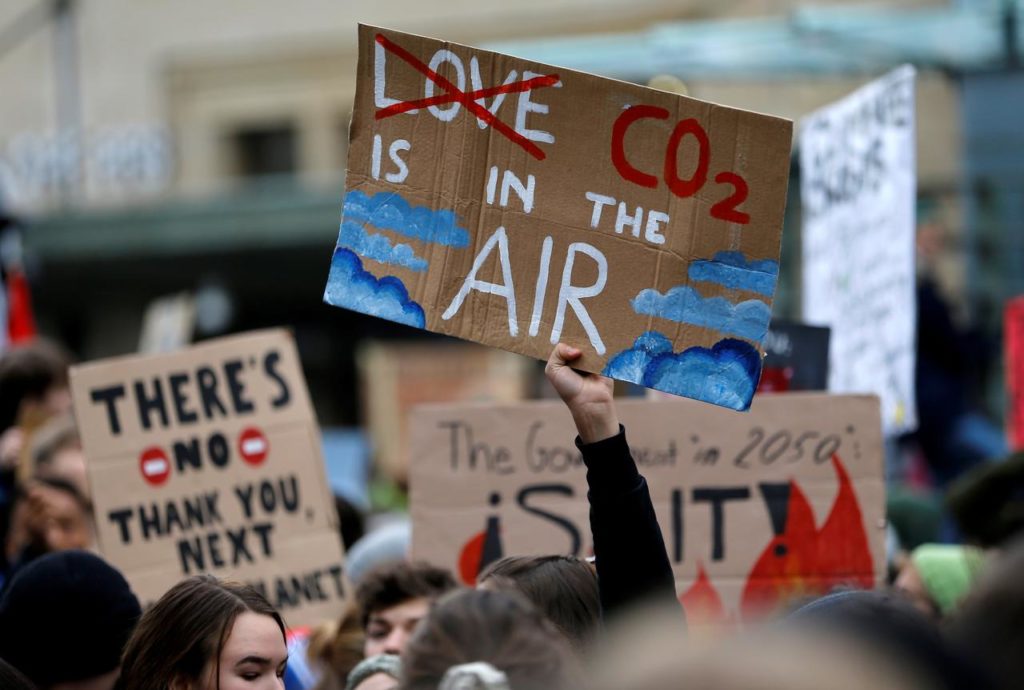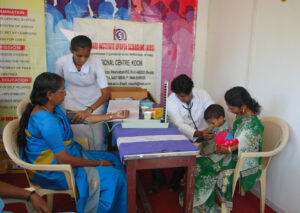How Climate Change Is Killing Us, In More Ways Than One

FILE PHOTO: A climate change activist holds a sign during a demonstration of the Fridays for Future movement in Lausanne, Switzerland
We’ve all heard about climate change’s effect on our planet — but do you know about the many ways it also impacts human health?
Climate change is expected to cause an estimated USD$2-4 billion in direct damage costs to health by the year 2030, according to the World Health Organization.
But the human health toll is more devastating.
Increasingly frequent heatwaves, storms, bushfires, hurricanes and floods can cause death and injury. The smoke from bushfires contributes to respiratory illness and premature death, especially in busy cities.
Already, 37 percent of heat-related deaths can be attributed to human-induced climate change — a figure that will likely rise along with temperatures.
As the latest Global Burden of Disease study revealed, heat and air pollution have become bigger problems in many parts of the world since 1990.
Extreme weather events also spread disease. Changing temperature and weather patterns can create conditions for waterborne or foodborne illnesses such as cholera, and vector-borne diseases such as malaria and dengue fever to thrive.
The impact of these weather disasters on food security can be devastating.
With crops impacted by changing weather and drinking water rendered unsafe, climate change can lead to malnutrition. Malnourished children have a higher risk of death from common childhood illnesses such as malaria. Young children also bear the brunt of foodborne diseases: Children under five also account for 30 percent of foodborne fatalities.
Climate change can also undermine many social determinants for good health, such as livelihoods and social support structures; and can cause mental health issues, including climate anxiety, post-traumatic stress (including in frontline workers such as firefighters and health workers), and long-term disorders due to displacement and other life upheavals.
Those in marginalised communities, or in areas with weak health infrastructure, are most at risk of many of these health impacts. Women also face greater risks of violence as a result of climate change — with weather disasters often linked to higher rates of domestic violence, sex trafficking and other forms of gender-based abuse.
Another, often-overlooked, threat is the interaction between pandemics and climate change.
A recent comprehensive meta-analysis revealed that climate change could aggravate more than 50 percent of known human pathogens, meaning it could lead to an increase in pandemics and epidemics.
Worse, some studies show an increase in vaccine hesitancy since the COVID-19 pandemic in some populations — making building vaccine confidence all the more urgent in the face of climate change.
The climate crisis threatens to undo the last 50 years of progress in development, global health and poverty reduction, the World Health Organization has warned. It also raises significant human rights issues. While climate change has not traditionally been seen as a health and human rights concern, that may be changing.
Recent high-profile court cases in India’s Supreme Court and the European Court of Human Rights framed climate change health issues as a human rights concern.
Against that backdrop, this special report — which coincides with the 2024 World Health Summit, a regional meeting hosted by Monash University on April 22-24 — examines the various ways in which climate change, health and the health sector intersect, spotlighting current key challenges and solutions.
(Originally published under Creative Commons by 360info™. Read the original article here)





